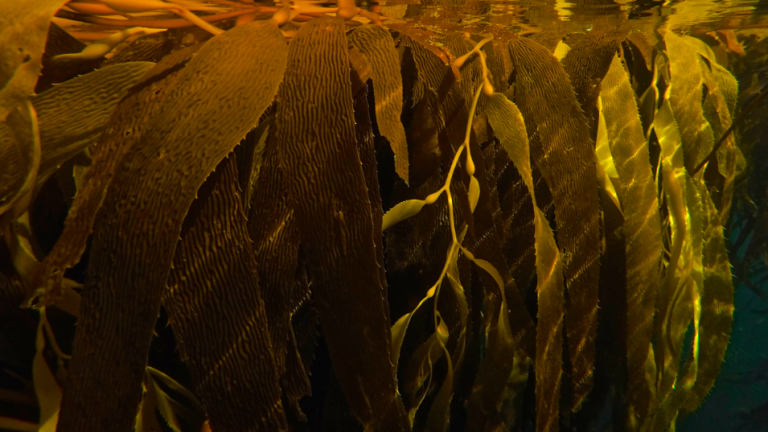
Running Tide, an aquaculture company based in Portland, Maine, has said it expected to set tens of thousands of tiny floating kelp farms adrift in the North Atlantic between this summer and next. The hope is that the fast-growing macroalgae will eventually sink to the ocean floor, storing away thousands of tons of carbon dioxide in the process.
The company has raised millions in venture funding and gained widespread media attention, and it counts big names like the Chan Zuckerberg Initiative among its customers. But Running Tide struggled to grow kelp along rope lines in the open ocean during initial attempts last year and has lost a string of scientists in recent months, sources with knowledge of the matter tell MIT Technology Review.
At least several of the departures were due, in part, to concerns that the company’s executives weren’t paying sufficient attention to the potential ecological effects of its plans. Some employees were also disturbed that Running Tide was discussing more controversial practices, including adding nutrients to the ocean to stimulate macroalgae growth.
In a patent filing last year, the company described a floating apparatus that could be seeded with gametophytes or spores of macroalgae and “enhanced with a nutrient payload” that could “release iron oxide into the water.” That may amount to a form of ocean fertilization, a concept that sparked public criticism and prompted the creation of international regulations a decade ago.
Read the full article at: https://www.technologyreview.com/2022/06/16/1053758/running-tide-seaweed-kelp-scientist-departures-ecological-concerns-climate-carbon-removal/





